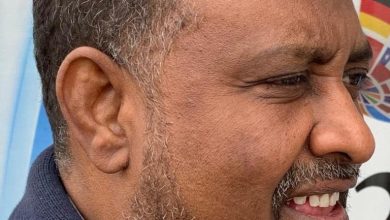They lost… and died in vain!

As I See It
Adil Al-Baz
1
I hate the images of the dead, the blood, and the dismembered bodies (I hate this even for us), even for those I consider enemies and traitors deserving of death. These are my personal feelings. Yet, every time I see the heaps of corpses flooding the media, I’m struck with questions: Why are these people fighting? What is their goal? What values are they defending?
Then come more questions: If these simple, ignorant people are being pushed by the Dagalos to build a kingdom without knowing its purpose, what about those who are pushing the Dagalos themselves? Haven’t the Dagalos realized their project, coup, and conspiracies have failed? Have the sponsors not come to the obvious conclusion that their plan to control Sudan crumbled when the coup failed on April 15, 2023? Let’s break it down.
2
Unfortunately, these poor wretches don’t have a political, religious, or authoritative cause to fight for. They’ve been thrown into this inferno under various pretexts. Some were sold a political project with two parts:
First, the illusion of a Dagalo Kingdom uniting Arabs from all over, establishing their realm in Sudan. A few of these deceived people were brought from the deserts to the “heaven of refuge” (savages flung into paradise), their dreams stirred by false promises. The irony is that even when they realized these promises were empty, they continue fighting for a mirage!
Second, some were led to believe in a so-called “State of 56,” a state they know nothing about and never heard of. They have no connection to its reality or the ideologies behind it. Yet, they repeat its name without understanding its essence, purely out of ignorance. How pitiful to fight for something you don’t even comprehend!
I won’t even touch on the ridiculous promises of “democracy” or the human rights we supposedly enjoy under the Dagalo Kingdom, which we’ve seen play out in this war. The model their sponsors live by is what we’re supposed to admire! They’ve turned values into a farce.
3
Others have been made to believe they’re fighting a war against the “Feloul” or “Kizan” (with a broken ‘K’), though they don’t even know who the “Feloul” or “Kizan” are, yet are told to fight them. If they did, they’d realize these same people are among their leaders and ranks!
The real question: Why are they fighting the Feloul? What have the Feloul done to them? What’s the grudge? Did they invade their lands? Steal their wealth? Violate their women? Seize power that belonged to them? What is the issue between them and the Feloul? Are they religiously different? It’s hard to tell, considering they follow the same “religion” of looting and pillaging!
These poor souls can’t answer any of these questions. They don’t realize they’re being used as cheap tools for other people’s agendas, fighting a war that isn’t theirs. In this sense, the Dagalos are no different from these wretches—they’re all pawns in a conflict leading them to their own destruction.
5
Surely by now, the Dagalos must realize their dreams of a kingdom have gone up in smoke. Their greatest hope is to return to their former state of plundering Sudan’s resources, which made them the richest people in Africa. How ironic! Cursed be greed!
In their desperation, they now rush to conferences, hoping for any deal or agreement that will end the war and preserve what remains of their wealth, perhaps granting them some local authority in Darfur. Despite temporarily controlling four states there, they know the army and joint forces are advancing, and it’s only a matter of time before their kingdom is buried, along with their bodies!
The war’s sponsors and financiers—those whom Amjad Farid calls the “chorus of the vile”—must now understand their plan to seize power and control Sudan’s resources has failed. They achieved none of their goals. So, why do they continue? Can they still seize power through war? Can they control Sudan’s resources or ports after failing to win the conflict?
Can they defeat the Islamists or political Islam, their supposed sworn enemies? The revolution ousted the Islamists five years ago, but the war has brought them back to the people’s embrace, crowned as defenders of honor and dignity.
The Dagalos’ and their sponsors’ objectives for this war have turned to ashes. Their dreams of controlling Sudan’s power and resources have evaporated. Those who ignited the conflict, and the vile chorus, have gained nothing. The only ones who profited are the looters and opportunists, while the simple people were thrown into a battle with no clear purpose, dying in vain.



